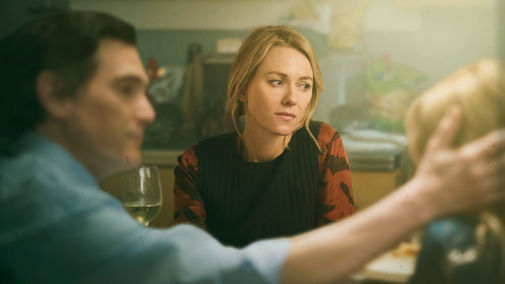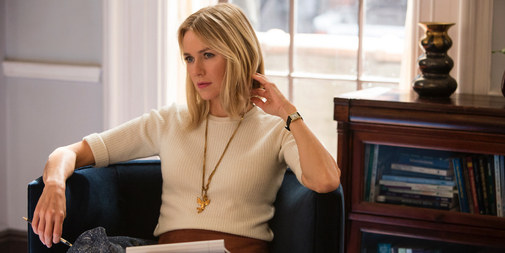By Spencer Coile
With many actresses making that giant leap from the large to small screen in recent years, it is not shocking that Naomi Watts has followed suit. Armed with a megawatt smile and acting chops utilized by some of the industry's most prolific directors, it almost felt like a no-brainer that Watts would eventually find herself as the glue that holds a series together.
Gypsy, unfortunately, was not met with the critical fanfare many expected, considering the quality of its leading actress. With some calling the series "boring," and others arguing that the writing does a major disservice to Watts, perhaps you are intrigued. Is it worth watching at all? In an attempt to avoid the standard "binge model" of television viewing, I only watched the first episode of Gypsy -- to guage its effectiveness as a psychosexual drama and whether or not Watts' capabilities would be better served elsewhere.
Gypsy tells the story of Jean (Watts), a psychologist in New York City. Fascinated by her clients and what makes them tick, Jean begins to blur the line between doctor and patient, friend and lover, as she begins lying to her husband (Billy Crudup), so that she can follow her patients and live vicariously through them. At least, this is what I have ascertained from the first trip down "The Rabbit Hole" (the title of the pilot episode). As Jean hops from patient to patient, we slowly start to see her fascination with them grow. Only time will tell how dangerous her curiosity will spiral, but considering Jean's opening voiceover about the power of our unconscious and the lengths we will go to in order to feel like realized beings, we can assume it will get pretty juicy.
Many critics were quick to point out the flaws that peak through cracks of Gypsy's narrative structure. It beats its audience over the head with a message, Crudup is currently cast to the wayside in a thankless husband role, the writing feels clunky. And to a certain degree, I do not entirely disagree. Could we do without some of the obvious voiceovers? Sure. Was it a bit too on-the-nose where Jean sets a pizza timer and pensively stares at it -- an indication that she, too, was a ticking timer? Absolutely. But there is certainly something fascination lurking beneath the surface of Gypsy. Even a tagline that reads, "Who are you when no one is watching?" does not do the series justice. There seems to be something more sinister waiting in the upcoming episodes, and for that, I am cautiously optimistic.
Still, for those taking a chance on Gypsy for Naomi Watts, you will not be disappointed. She has been equipped with better writing in the past, a meatier character to sink her teeth into, but Jean is an enigma and Watts surely is up for the challenge of unraveling the complexities of this woman. And it would appear the showrunners are fully aware of this. Even in scenes that are not Jean-focused, the camera still lingers on Watts' face. She is always processing what is going on around her, always contemplating her next step. Is she about to throw away her marriage, her career, or is she going to sink back into the background? Watching her consider every option before her is enough to sit through at least "The Rabbit Hole." And although Crudup has half the material of his co-star, he is no slouch either. He imbues his Michael with enough charm to make Jean's struggle more relatable, but with an equal amount of selfishness and thoughtlessness that makes Jean contemplate her role as a wife and mother. Together, they are electric.
Maybe Gypsy will implode in the very next episode. Or maybe it will keep building off the very strange world that was introduced in the first episode. My early assessment is that it is worth a shot, if only to enjoy Watts tackling an extremely complicated character. She is taking us down an insane (and oftentimes silly) rabbit hole, so maybe we should sit back and go on this ride with her.


